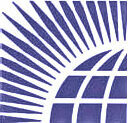
Letter from Apia – Matthew Neuhaus sends daily blog from CHOGM 2024
Letter from Apia
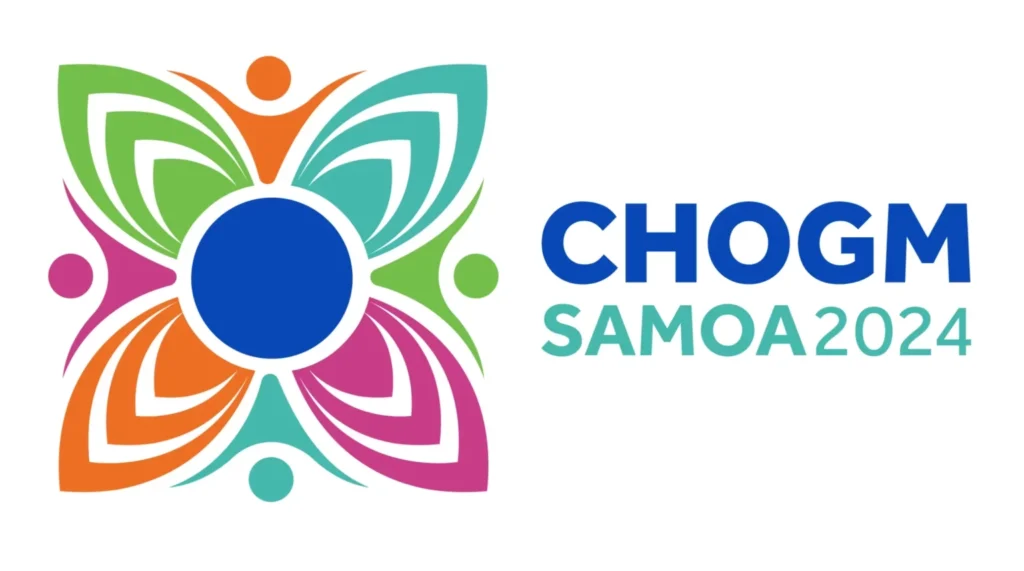
Matthew Neuhaus is attended the Samoa CHOGM and sent us his daily thoughts, which were circulated.
- Subject: Letter from Apia – CHOGM Day 6 – 26 October 2024
- From Matthew Neuhaus at CHOGM in Samoa
The final day began with Leaders in the Retreat and a group of Ministers and senior officials meeting with civil society representatives in a dialogue curated by the Commonwealth Foundation and ably led by its Director General Anne Gallagher. It was very well attended on both sides and enhanced the sense of a more open CHOGM.
However the thing which was on everyone’s mind was the SG election as the first order of business in the Retreat. The wait was not too long before the news filtered through that Ghana’s Foreign Minister had won.
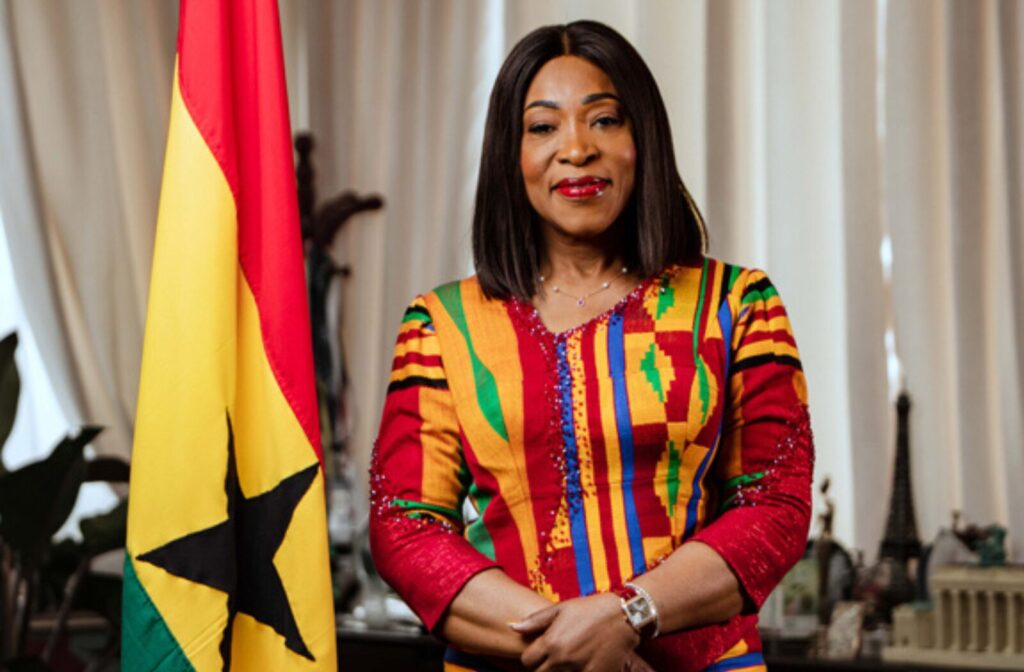
The Gambian Foreign Minister who was with us quickly stood to announce the news and congratulate Botchwey. He spoke well about the importance of the Commonwealth and his own commitment, as he had earlier in the Foreign Ministers meeting.
We understand there was only one round and Botchwey was well ahead. She may even have got the 34 votes her team were expecting. She ran a good campaign, using Ghana’s more extensive diplomatic network. They focused on securing votes in the Pacific, Caribbean, Asia and key allies of Africa by attending key regional meetings.
Her background as Foreign Minister will assist in the role. She knows she will have to address issues of reform, human rights (including gender inclusivity) and Secretariat resources. Hopefully all Commonwealth will give her support and space.
Returning to the Dialogue. The DSG opened with remarks on the way this session had evolved to now be one in which the Secretariat and Ministers were there to listen to the stakeholders. In a carefully managed approach Anne ensured a wide variety of different voices were heard and responses were received from Governments.
Issues covered included disability, health justice, the Fossil Fuels Non-Proliferation Treaty initiative, indigenous knowledge and climate, gender equality and diversity, and human rights. Canada reiterated its commitment to broaden CMAG’s role. The new UK Minister for the Commonwealth – Lord Collins – stressed the Commonwealth was more than governments – it was its peoples. We needed to hear their voices and respond.
We then moved to a session chaired by Sue Onslow with presentations from CLGF on sustainable urbanisation, the CTU on telecommunications and cyber security, and the CPA. A question and answer session followed and then the lights went out – quite literally. A huge tropical storm had cut the power to the hotel and much of the island.
With many participants needing to head to the airport for the flight out the session had been brought to a premature end. But nevertheless it had been well attended and worthwhile and should continue to be a feature for the future.
Meanwhile back at the Retreat leaders too had been busy. The Communique negotiated language on slavery and reparative justice had its square brackets removed providing a way forward for a respectful process – and one which could become a major issue for UK and the Commonwealth and will become bigger at the next CHOGM in Antigua.
Much of the language in an overly long Communique had been signalled so there were no surprises, and most stakeholders got their references in. Of note is the language provided on Myanmar – of great importance to Bangladesh but also others. Myanmar is still one of the missing Commonwealth souls.
Also of note is the absence of any reference to Zimbabwe. Easiest way to handle it perhaps while the Commonwealth Observer Group Report on the 2023 Elections – only released to governments shortly before CHOGM – is digested by them. But Zimbabwe was not an issue at CHOGM even if it will still haunt us post CHOGM. Its cause was not helped by Zimbabwe’s Official Spokesman Charamba describing the Commonwealth as “a needless albatross” during CHOGM.
Australia will be pleased with the support for them hosting COP31 with the Pacific in 2026, and they deserve it. Their support to Samoa for hosting CHOGM, the extent of their support to the Commonwealth in new money to expand the Small States Office in Geneva, to the Climate Finance Access hub in Mauritius and for Commonwealth electoral training was significant. This CHOGM has led to a substantial re-engagement with the Commonwealth. Britain’s commitment was also clear.
CMAG will now comprise Antigua and Barbuda, Botswana, Canada,Grenada, Malaysia, Malta, Mauritius and Zambia with Samoa ex officio as Chair. Not a bad lineup for building up its role.
The Apia Commonwealth Ocean Declaration is an excellent document providing substantial support to small islands with regard to their boundaries with sea level rise and much more. It provides good language as we move on to the next COP and the ICJ Advisory Opinion.
Another important outcome document is the adoption of the Commonwealth Principles on Freedom of Expression and the Role of the Media – formulated and long championed by organisations like CLA, CHRI, CJA and others.
The Leaders Statement is short and pithy. It pays due respect to the memory of the late Queen Elizabeth and also Sir Sonny Ramphal. It thanks Patricia Scotland in what for her was a good final CHOGM. And it encourages the reform process for the future. One curious addition was the reference to Haiti at the request of Caribbean leaders.
For all its detractors the Commonwealth at 75 is still in good shape. In a world wracked by violent conflict and division from the Middle East, to East Europe to the USA it demonstrates a different world of consensus and respect can exist. It is changing, with small states for whom it provides an ideal forum, playing more of a leading role – and that is good. Samoa did a great job hosting as the first small Pacific island state to do so and PM Fiame will be a committed chair in office. Antigua will no doubt do the same.
This will be last letter from Apia – in fact I am penning it in Fiji en route home. But there will be more think pieces and analysis in association with the Round Table.
It has been good to reconnect with the Commonwealth world again and I would like to thank Commassoc for supporting my attendance as your representative, along with the Round Table. It has been a privilege and all former Secretariat staff should feel proud that the professional standards they set are maintained to this day. And at CHOGM the Blue Book continues to rule!
Matthew
- Subject: Letter from Apia – CHOGM Day 5 – 25 October 2024
- From Matthew Neuhaus at CHOGM in Samoa
The weather improved and our Samoan hosts treated us to a spectacular opening ceremony deeply rooted in their traditional singing and dancing. In its sheer simplicity set in a gymnasium hall with no modern costly innovations it was probably the most economical but effective opening ceremony of recent years. A particularly nice touch was an introduction in which all the cultures of the Pacific featured, including Maori dancers and an Aboriginal didgeridoo player.
Turnout was good with almost all nations represented. We counted 20 Heads with another 20 Foreign Ministers or Deputy PMs. The stand out was Canada – represented by its UK High Commissioner because of a political crisis back home. He came in first – the most junior. A sad day for Canada at the Commonwealth.
Speeches from the principals were generally along expected lines. Climate was inevitably the focus of PM Fiame’s address. The SG paid particular tribute to the late Queen’s commitment to the Commonwealth, and welcomed King Charles to his first CHOGM as Head. Kagame spoke of the importance of finding a consensus that can stand the test of time.
The King noted he had travelled to every corner of the Commonwealth. At a time of heightened global conflict it was more important than ever. We must use the language of respect and reject the language of division, and find creative ways of addressing the past – a nod to the reparatory justice issue for slavery.
He spoke of human rights, the existential threat of climate change and the importance of civil society. The Association of Commonwealth Universities got a particular mention for Commonwealth fellowship program for small island developing states. All in all one of the most substantive speeches ever by the Head.
While the King met new Heads over lunch, the SG held the usual reception for Ministers and civil society representatives. The media were not much in evidence. The presence of Amina Mohamed, the SG’s Special Envoy on Sports and Enterprise, sparked rumours she might be a last minute SG candidate again.
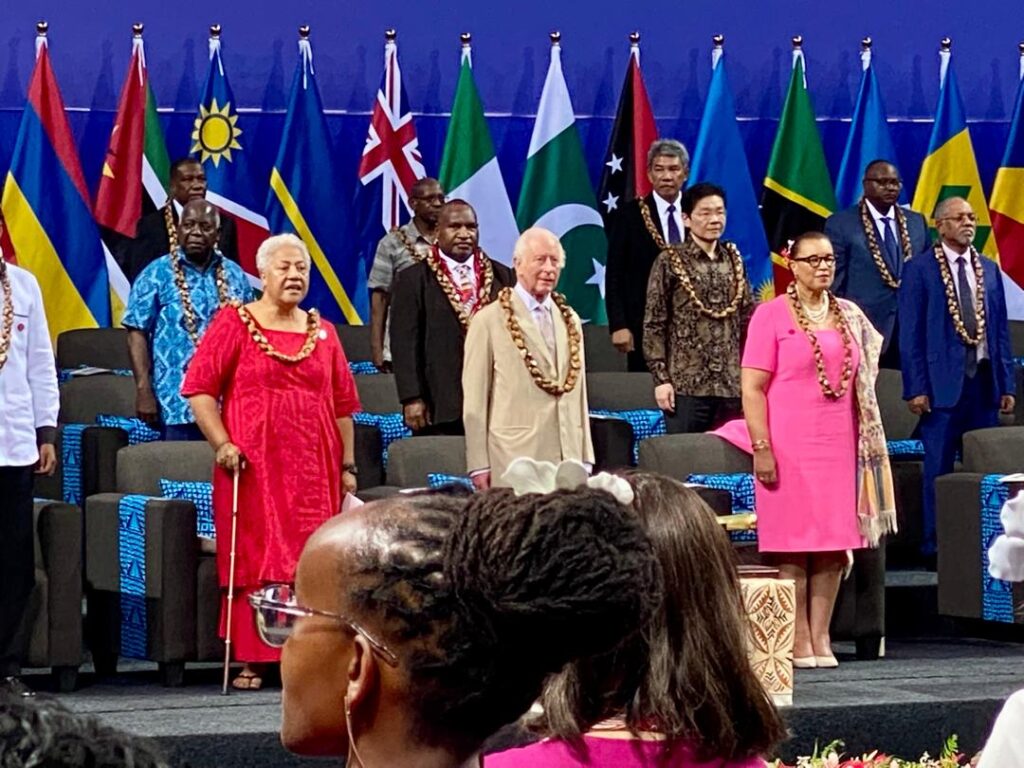
- Subject: Letter from Apia – CHOGM Day 4 – 24 October 2024
- From Matthew Neuhaus at CHOGM in Samoa
The weather turned very bad, literally raining on King Charles parade, or rather his installation as a High Chief.
The Business Forum and side events wrapped up. Foreign Ministers and officials were cloistered in their island retreat finalising the text of the Communique and other outcome documents.
No particular dramas to report. We will leave it though till tomorrow after the Opening Ceremony and SG’s reception to report on details at this stage. So a short letter tonight.
Matthew
- Subject: Letter from Apia – CHOGM Day 3 – 23 October 2024
- From Matthew Neuhaus at CHOGM in Samoa
The storms did come but soon dissipated. The King arrived in the evening to great excitement. The media have been encouraging him to wear the colourful Samoan shirts so suitable for the tropics. It is sad to see so many red faced British delegates from London clinging to their uncomfortable suits when almost everyone else is wearing these shirts! They only cost a few dollars and would make a great souvenir of Samoa.
Day 3 began with a well attended Commonwealth Sports breakfast, at which both the SG and Prime Minister spoke. It is good to see the Commonwealth Games revived by Glasgow for 23 July – 2 August 2026 in a slimmed down selection of sports using existing facilities.
It seems like a good model for the future and the developing nations of the Commonwealth are keen. Another speaker at the breakfast was the Commonwealth Special Envoy for the Ageing Dame Carol Black – an interesting counterpoint to the voices of young athletes attending, and making the point sport is not just for the young.

It was also interesting to meet Lesotho’s SG candidate Joshua Setipa at the breakfast. He quickly left giving the opportunity for a more engaged discussion with the Lesotho Foreign Minister. He said the campaigning was tough and he felt marred by dirty tricks. Rather sad. On a happier note it was wonderful to catch up with former DSG Masire Mwamba there representing Botswana.
There was an extensive side events program – too many to manage to cover. There was an interesting session on sustainable urbanisation with CLGF and the Kings Trust in the lead and an impressive presentation by a Rwandan Minister on their work on this.
A particularly important side event chaired by Alison Duxbury of CHRI and including Venkat Iyer of the Round Table and supported by Kingsley Abbott of the Institute of Commonwealth Studies which promoted the Commonwealth Principles on Freedom of Expression and the Role of Media in Good Governance. These are expected to be adopted by Leaders at this CHOGM.
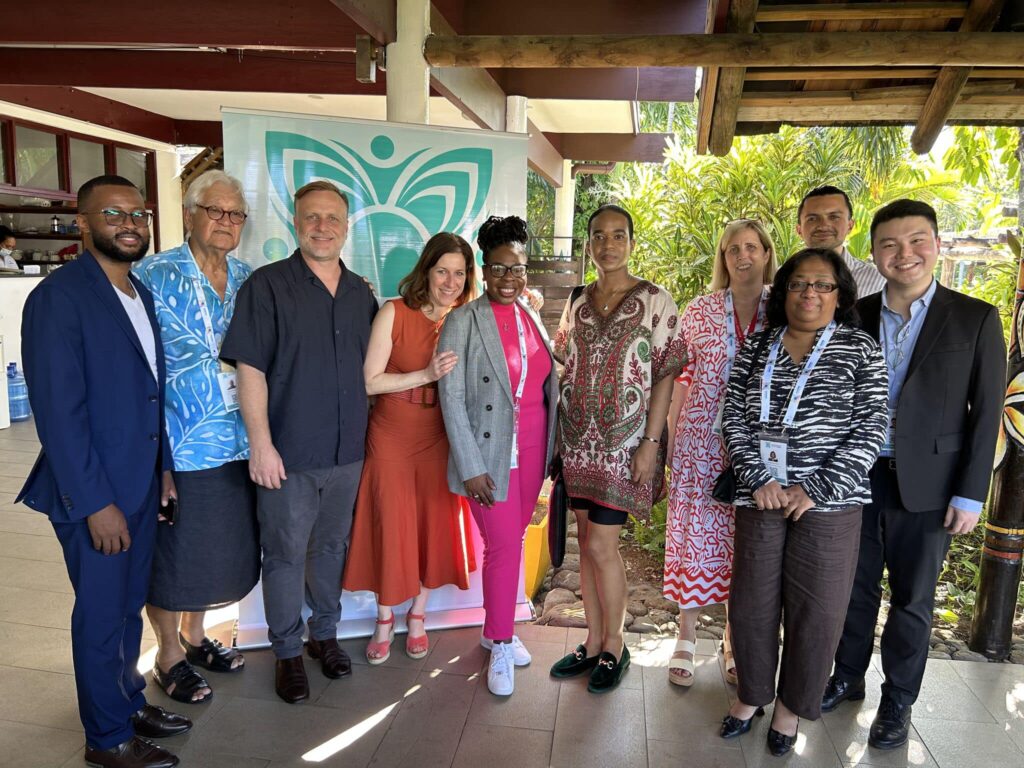
Kingsley Abbott (third from left) with participants at one of the Institute of Commonwealth Studies’ side events at CHOGM.
The Canadian official attending also said Canada would seek to strengthen CMAG and have it play more of a role on Human Rights. As someone who was present at the creation at the Auckland CHOGM in 1995 I applaud such an effort. It was in line with the vision of Nelson Mandela when he led the creation of CMAG to respond to the outrageous executions of Ken Saro Wiwa and the Ogoni activists by Nigeria’s Sani Abacha. But it won’t be easy.
Other workshops covered health particularly non communicable diseases and mental health, climate, criminal law and development policy.
My Round Table colleague Derek McDougall attended the Ministerial Meeting on Small States and has provided a comprehensive report on this. British Foreign Secretary Lammy was a star at the Business Forum. Excitement was also caused by the presence of representatives of Elon Musk’s satellite system Starlink. But overall it is a small Business Forum and still to come to grips with the pressing need to mobilise private sector funding for small states development.
As we head into CHOGM proper the turnout of Heads is looking disappointing. Pacific Leaders are arriving in force including Australia and New Zealand, who have contributed significantly to the cost and provided personnel from police and military to support Samoa. Turnout from the distant Caribbean is poor. Even Africa with the SG candidacy at stake may not even manage have half its Heads attend. India and South Africa’s Presidents are choosing a BRICS meeting in China over the Commonwealth. There are signs for concern in this for the future.
Tomorrow the King will undertake the usual pre CHOGM State Visit prior to the Opening Ceremony on Friday. Foreign Ministers will meet to finalise the draft Communique and other events will wrap up.
Matthew
- Subject: Letter from Apia – CHOGM Day 2 – 22 October 2024
- From Matthew Neuhaus at CHOGM in Samoa

Storms may come but the weather for the first few days has been sunny and bright. The three forums – Peoples, Youth and Business – concluded in a joint reception outside of Apia at St Therese’s Catholic Retreat Centre. As the sun set the hundreds of participants were treated to a spectacular display of traditional Samoan singing and dancing, and plied with food and excellent New Zealand wines.
I had a chance to have a quick word with the Secretary General and Prime Minister who were both very pleased with how things were going. The all important Oceans Declaration seems on track and that will be the key outcome for this CHOGM.
The reporting from the UK and Australian press on slavery reparations recriminations, concerns of monarchy, and a dying organisation all seem in Samoa to be from a parallel universe. Even Zimbabwe, with the late release to governments of the COG Report from the 2023 elections, has been kicked beyond CHOGM for resolution.
The only real controversy is over who will be the next Secretary General. The outcome is still far from certain. Lesotho’s Joshua Setipa is clearly putting in a strong effort to challenge Ghana’s Foreign Minister Shirley Botchwey, and The Gambia’s Mamadu Tangara still in with a chance. This is important because the next SG will be crucial to the future of the Commonwealth.
The three Forums and their success demonstrates though there is real energy in our Commonwealth family. Participants in all were extremely positive on the program and exchanges, and inspired in their work.
The Peoples Forum was particularly well designed around its themes of health justice, climate justice and freedom of expression. There was so much substance here that the discussion did not wander far from the themes. Balancing the voices of the Pacific we heard more on day 2 from Asia, Africa and the Caribbean.
Access to health care and the loss of health care workers from developing to developed nations was a theme in health justice. The voice of the disabled was clearly heard with a strong attendance by them.
A moment of silence was held for all the journalists killed this year with truly shocking figures cited from Asia and the Middle East. The use of suppressive legislation against media across the Commonwealth is of concern. Freedom of expression is under real threat and disinformation a major problem.
A special event held by IFCO – the Independent Forum of Commonwealth Organisations – convened by Owen Tudor was joined by ASG Luis Franceschi and Anne Gallagher from the Secretariat. It is likely IFCO will become an increasingly important way for civil society to organise and interact with the intergovernmental Commonwealth.
The concluding session on the future of the Commonwealth chaired by Sur Onslow had two great Commonwealth elders – Justice Michael Kirby and Sur Anand Satyanand – and two articulate younger voices Shomy Chowdhury (Bangladesh) and Darrione Narine (Trinidad and Tobago). Kirby affirmed the importance of the Charter and also made an impassioned speech for LGBTI rights. Others also spoke with great commitment.

Overall though it is increasingly clear that the future of the Commonwealth will be what we see happening in Samoa – an organisation where the smaller countries will provide the leadership and civil society voices have space to be heard. And don’t think they are not being listened too – the Australian and NZ Governments had silent participants in all three forums. The new UK Minister for Africa and the Commonwealth Wayne Collins quietly attended the final session of the Peoples Forum and stressed that civil society was the key ingredient for the future.
A day of Commonwealth Games breakfast, further civil society side events and the Business Forum Is ahead.
- Subject: Letter from Apia – CHOGM Day 1 – 21 October 2024
- From Matthew Neuhaus at CHOGM in Samoa
Arriving in the beautiful South Pacific islands of Samoa – inspiration for the musical “South Pacific” – you immediately know CHOGM is happening. Into Apia and across the island all the villages have adopted a CHOGM countr
They are decorated with the flags and colours of those countries from Antigua and Barbuda to Zambia. Australians will be struck by a village near the airport which is covered in green and yellow kangaroos and flying endless Australian flags mingled with Samoa’s distinctive red flag with a Southern Cross in one corner.
In Apia itself CHOGM banners are everywhere, particularly along the CHOGM peninsula of hotels and government buildings where the main events are being held. On the other side of the harbour a moored cruise ship, providing much needed accommodation, looms over the famous and beautifully refurbished Aggie Grey’s Hotel where the Business Forum will be held.- CHOGM Day 1 broke with a small harbourside opening ceremony where a local vessel brought the CHOGM torch to shore for Prime Minister Fiame and the Secretary General. The three main civil society forums – Peoples, Youth and Women – kicked off with separate opening ceremonies.
Prime Minister Fiame Ma’atafa opened the Peoples Forum with the phrase of the moment “Talofa with a smile”. Talofa is the much used Samoan word for greeting and the one word we will all remember from Samoa. She emphasised that her “Talofa with a smile” campaign had been launched to deepen a sense of real service in Samoa’s public service.
This led her on to speak in broader Commonwealth terms about the importance of service. It has certainly worked in Samoa – or may be it was always there. Everyone is extremely helpful to their guests. Arrangements and accreditations have gone smoothly and there are many obliging taxis to support the shuttle buses moving around Apia is easy.
We spent the day at the Peoples Forum with a brilliant program organised by the ever active and smiling Anne Gallagher and her team with a strong focus on the challenges of climate change. Despite the distant location Commonwealth CSOs based in London were well represented and the diverse group of speakers came from across the Commonwealth. But it was a Forum with a distinctive Pacific voice and especially the voice of women and youth – “not drowning but fighting” in the face of the climate emergency.
The formal sessions were mixed with Pacific culture – with poetry, music, dance and even at the end of the day by a dramatic display of a fire dance. All though had a serious message. Separate delegate led sessions focused on health justice and climate justice with freedom of expression a focus tomorrow.
Despite some concerns, at this point CHOGM remains heavily focused on the climate issues which is how Samoa wants it. Discussion on reparations for slavery, Zimbabwe and geo-politics may yet come as Leaders arrive and side events begin. There is necessarily much discussion over who to choose as the next Secretary General. But both in organisation and substance CHOGM week is off to a good start with CSOs helping setting the agenda and climate and a small state voices focus very strong.
Commassoc members will be pleased to know that Angela and I caught up for dinner with the great Tuiloma Neroni Slade and Jeanne at their beautiful home in the hills overlooking Apia Harbour. It was so good to see them and Neroni will be speaking at one of the many CHOGM side events.
Matthew
Sent from my iPhone–
- Matthew had a long career as an Australian diplomat, representing his country in the Netherlands, Zimbabwe, Democratic Republic of the Congo, Malawi, Zambia, Nigeria, Ghana, Sierra Leone, Senegal, The Gambia, Kenya, Ethiopia, Somalia, Uganda, Seychelles, Papua New Guinea and Nauru. He represented Australia at the UN in New York and was Director of Political Affairs at the Commonwealth Secretariat from 2002-2009.
Copyright © 2026 | MH Purity lite WordPress Theme by MH Themes